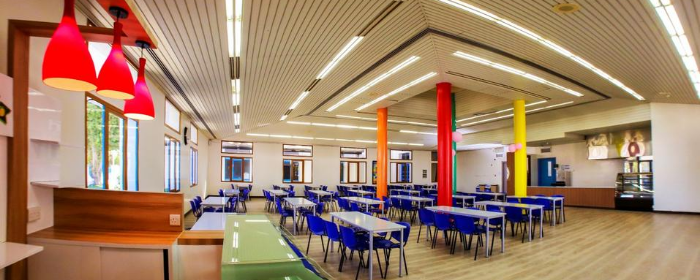
Academic Jobs Middle East had the privilege to speak to Ms. Pratibha Rao, Emirates International School(EIS)-Jumeirah Principal, about how Covid-19 pandemic is affecting the normal way of teaching and how EIS is ensuring continuous learning without disruptions. Here is the complete interview:
Q1- What was the main disruption caused by Covid-19 outbreak and how did you address it?
A1- There were several disruptions to the education of students caused by the Covid-19 outbreak. The most significant of these was the cancellation of the IB final external examinations for our Year 13 students, that were due to take place from 30 April to 22 May. This decision was taken by the IB organization after careful consideration of its impact on students’ future educational plans. The IB has now put in place alternative mechanisms to grade students in a fair and equitable way so that no student’s future plans are jeopardized.
The school has swiftly come on board with all the requirements outlined by IB and we are ensuring that all requirements are met by the school, so as not to delay the issue of final results for our students.
Most importantly we have had to manage the anxiety and concern faced by students and parents and reassure them that their future plans will remain secure. To this end we are holding daily distance learning lessons for all our final year students. The programme coordinators have hosted two online assemblies, with more to follow, to give students direction and relevant information. Our teachers are available to answer students’ questions. The Higher Education Advisor continues to hold online meetings to counsel students regarding their university applications. All updates from IB are communicated promptly to students and parents by the school leadership. The outcome of all these actions is that our students are feeling less vulnerable and are ready to face the new approach.
Q2- What steps did you take to ensure continuity of learning and that your students are still being offered the same learning program you had planned for this year? How did implementing these changes impact your work nature?
A2- We have ensured that there was no break in the continuity of provision for all our students from Early Years to Year 13. Plans were put in place for distance learning during the week before schools broke up for the two-week early spring break. These plans were shared with parents and students so that they could prepare themselves for online learning.
No changes have been made to the curriculum, the online time with teachers is from 8 am to 1 pm, after which students can continue to work on their assignments as they would have done after-school on normal days.
Detailed guidance has been provided to students and parents as to how lessons can be accessed and work submitted. Working parents have the option of checking up on their children’s work in the evenings as it remains accessible to them.
The normal routines of the school are being maintained. Daily student attendance is taken and parents contacted in the case of continued absence. Online etiquette and safety guidelines have been shared and students are monitored carefully. EAL and SEND provision continues and the school counselors are available through the day to vulnerable students.
All these measures have enabled us to run a robust distance learning programme which ensures that the students’ education is not being compromised.
Implementing these changes did not have too much impact on the nature of my work. The same actions of monitoring and managing were required, except that they were all online instead of a combination of face to face and online. Also engagement with colleagues remotely does not have rigid time boundaries.
Q3- Have you received any guidance or instructions from Education Ministries or Councils on how to respond to this outbreak, in terms of learning plans, premises health and safety, etc…
A3- All schools have received compliance requirements, such as dates, from KHDA and MoE for conducting the distance learning programme. Strict guidelines are provided for maintaining hygiene in the premises. We have received some audio-visual material from the authorities related to health and safety to share with students and families. The manner of delivery of learning is left up to the school. We are required to complete reports on our provision and submit to KHDA in the second week of distance learning.
Q4- How do you think this is impacting families, specifically working parents, who have children studying at your institution?
A4- While this has been tough for our parents, especially those where both parents work, as they have to manage their own work while ensuring that their children are working. Having said that, our parents have risen to the occasion and are supporting their children to the best of their ability. The school is supporting them through open dialogue, constructive feedback is welcomed and suggestions implemented when suitable.
Q5- How do you think the current situation is affecting your students (education, life experience, etc…) and what advice would you like to offer them during this time?
A5- Every child, regardless of age, will be affected by this pandemic. From physical restrictions such as social distancing to getting used to a new way of learning, students are expected to cope with a lot of changes overnight, which is bound to have an emotional impact. But overall, I think that our young people will be able to adapt themselves to these changes and it is our job as adults to support them through this to the extent possible. This experience is likely to build a level of resilience in our young people which will stand them in good stead in their future lives.
My advice to students would be to remain optimistic, as this will pass. Keep themselves healthy through good nutrition, sleep and exercise and focus on their school work. Use the restrictions to their advantage, by cultivating new hobbies and reading for pleasure and bonding with their family.